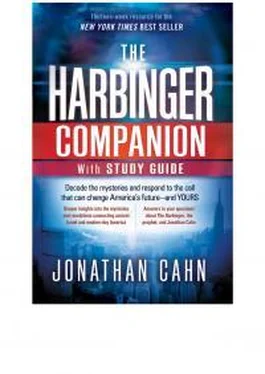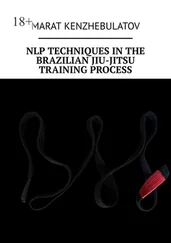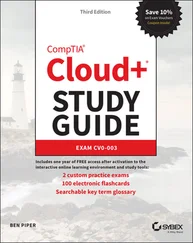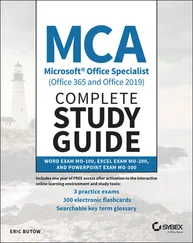The bricks have fallen,
But we will rebuild with hewn stone;
The sycamores have been cut down,
But we will plant cedars in their place.
The public proclamation of this vow connects America to ancient Israel, 9/11 with the opening warning strike concerning a nation’s judgment, and America’s post-9/11 response with the defiance of ancient Israel that led to the nation’s destruction. It identifies America as the nation under judgment. In this, such a proclamation bears witness concerning judgment.
The Two Witnesses
• The first witness:September 12, 2001, Senate Majority Leader Tom Daschle proclaims the ancient vow of judgment on Capitol Hill the day after the calamity.
• The second witness:Three years later, on the anniversary of 9/11, vice-presidential candidate Senator John Edwards proclaims the same ancient vow and from the vow builds his entire speech.
Both witnesses unwittingly identified America with ancient Israel, 9/11 with Israel’s opening strike of judgment, and America’s response with the defiance of Israel that led to its destruction.
Each vowed, “We will rebuild.” Each repeated ancient Israel’s defiant declaration. Each unknowingly pronounced judgment on America. Each unwittingly bore witness.
The Third Witness
But the Scripture speaks of two or three witnesses. Could there be a third witness? There is. The third witness would confirm the connection of the ancient prophecy to today—and not just to 9/11 but also to the economic collapse seven years later. In so doing, this third witness served as a sign that the underlying course of judgment hadn’t stopped but had progressed to a further stage.
This third witness was the new president of the United States, Barack Obama.
If one had to put the essence of the vow, its stones and sycamores, into modern English, it would be this: “We will rebuild. We will emerge stronger than before.” One can find this very rendering in Bible commentaries on Isaiah 9:10.
On February 24, 2009, a month after his inauguration, President Obama appeared on Capitol Hill, the same place in which the first witness, the Senate majority leader, had first spoken the vow on the day after 9/11. His purpose was to address America’s economic collapse. He quickly arrived at his central point, the pinnacle of his speech:
But while our economy may be weakened and our confidence shaken, though we are living through difficult and uncertain times, I want every American to know this:
We will rebuild.
We will recover.
And the United States of America will emerge stronger than before. 1
“We Will Rebuild”
The words “we will rebuild” repeat Isaiah 9:10’s ancient vow of defiance, but the context is, strangely, not the 9/11 attack but the economic crisis. In such a context, the vow appears unnatural. The first two witnesses were quoting Scripture but had no idea what they were saying. But the third witness doesn’t even realize he’s paraphrasing Scripture, the same that had twice been uttered by prominent Americans from the nation’s capital.
The new president’s oddly placed words bore witness that what had started with 9/11 had not ended but had continued in progression. Moreover, the words “we will rebuild,” when uttered by President Obama, had no qualifier or limitation. They weren’t tied to 9/11 or to the rebuilding of Ground Zero or New York.
The leaders of ancient Israel spoke of replacing clay bricks with hewn stone, and sycamores with cedars. In each case it was an example of a stronger object replacing a weaker. In view of the fact that they were responding to God’s opening warning of judgment, they were, in effect, telling God, in defiance, that they would emerge from the crisis stronger than before. So now the president would publicly vow that the nation would emerge stronger than before.
A Comparison of Vows
Note the parallels that exist in the words spoken. When you take the words of a commentary on ancient Israel in Isaiah 9:10 and compare them to the president’s vow on Capitol Hill, this is what happens:
• “They boasted that they would rebuild their devastated country . . . ” (commentary: Israel’s vow, emphasis added).
• “ We will rebuild , we will recover” (the president’s vow on Capitol Hill, emphasis added).
• “ . . . and make it stronger and more glorious than ever before ” (commentary: Israel’s vow, emphasis added).
• “And the United States of America will emerge stronger than before ” (president’s vow, emphasis added).
The parallels continue with the president’s other words. When ancient Israel uttered its rebellious vow, it was saying that it would decide its own future. According to one biblical commentary:
The arrogant response demonstrates how stubborn and overconfident [they] were. They thought they could determine their own destiny . 2
In like manner the president made this declaration:
The weight of this crisis will not determine the destiny of this nation . 3
He then declared that the answer would be found in our nation’s own strength, ingenuity, and efforts:
The answers to our problems don’t lie beyond our reach. They exist in our laboratories and universities; in our fields and our factories; in the imagination of our entrepreneurs and the pride of the hardest-working people on Earth. 4
In other words, the president was saying in effect, “We will trust in our own strength and our own resources.” This is exactly what the leaders of ancient Israel were saying when they spoke of hewn stones and erez trees.
The Words of Tom Daschle and the President
What the president vowed on Capitol Hill concerning the financial collapse, the second shaking, was virtually word for word what the Senate majority leader had vowed concerning 9/11, the first shaking, standing in the same place seven years earlier:
• “We will rebuild, and we will recover” (Tom Daschle, speaking of 9/11).
• “We will rebuild, and we will recover” (President Obama, speaking of the economic collapse).
The Prophetic Address
In the Bible a prophetic statement is often preceded by a prophetic address, identifying to whom the message is sent or directed. The vow of Isaiah 9:10 is preceded by this prophetic address:
The LORD sent a word against Jacob,
And it has fallen on Israel.
All the people will know—
Ephraim and the inhabitant of Samaria . . .
“We will rebuild . . . ”
—ISAIAH 9:8–10
The address identifies Jacob, Israel, Ephraim, and the inhabitants of Samaria as the ones to whom the prophecy is addressed. It speaks of the word “falling” on the nation and that “ all the people will know ” it. The word is for the entire nation so that all of its people will know it.
Now take note of the words spoken in both the president’s speech and that of the Senate majority leader before the words of the vow:
There is a passage in the Bible from Isaiah that I think speaks to all of us at times like this . . . “The bricks have fallen down, but we will rebuild with dressed stone . . . ” 5
. . . tonight I want every American to know this—We will rebuild . . . 6
Note as with the first two witnesses, Senators Daschle and Edwards, the president was reciting the vow on behalf of every American, speaking for the nation. And, as did the first two witnesses, he was unwittingly bearing witness to America as a nation estranged from God and in defiance of His will.
Thus did the president of the United States join the economic collapse to Israel’s ancient vow, as the first two witnesses joined 9/11 to those same words of defiance. Further, all three witnesses made the same proclamations in the same city, the nation’s capital city, on the same hill, Capitol Hill, and in the same building, the one that housed the country’s two highest representative bodies, each of which must confirm a law or proclamation in order to pass it, as with two witnesses.
Читать дальше












